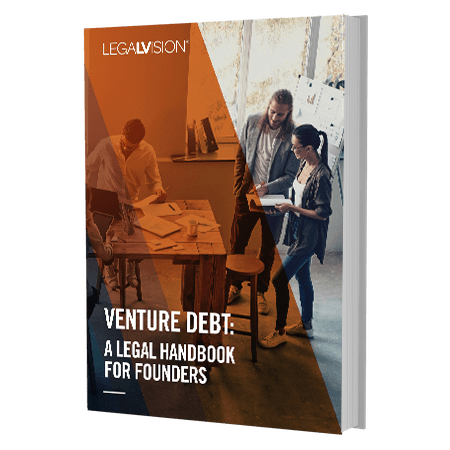No matter whether your business is a new start-up or a well-established company, branding is one of your most important considerations. Branding is a diverse business area and for some companies, brand awareness can be derived from creating and manufacturing their own business products. There are, however, a variety of other ways to develop your brand and drive growth without engaging in the complexities and expenses of manufacturing. Under a White Label arrangement, one party creates and manufactures the product and the other party purchases and onsells the product, often using its own brand labelling. The White Label Agreement (WLA) has become increasingly popular in e-commerce, software, electronic, and agricultural industries.
WLAs are also highly desirable for these industries conducting business internationally. WLAs ease transactions and facilitate international growth beyond the limitations attached to brick-and-mortar stores.
What is a White Label Agreement?
A WLA is an agreement between the supplying or manufacturing company and the reselling company in which the manufacturer creates and produces goods or services for the use and resale by another. Generally, manufacturers produce generic products for the reseller to re-market under their respective brand.
Why Do I Need a White Label Agreement
If you are looking to engage in a reseller arrangement, a WLA can be mutually beneficial to both parties, as it is important to be aware of each party’s obligations and understand the terms of the agreement. The WLA will also define the terms by which the reseller may brand the manufacturer’s product and the manufacturer’s expectations. If you are a reseller, you should also be aware of the Australian Consumer Law (ACL) application and how this law applies to white-labelled products you sell.
Continue reading this article below the formAdvantages and Disadvantages
There are many advantages to using WLAs. Notably, for newer companies, these arrangements facilitate the fast production of goods. Accordingly, they allow you to quickly put products on the market, generating growth and a presence in domestic and potentially international markets.
For resellers, there is no cost and minimal effort involved in the manufacturing process. This allows your time to be focussed on other business matters. It is important to note that the WLA does not allow any influence over the manufacturing process for resellers. This remains solely with the supplier.
Under the ACL, a manufacturer generally cannot require the reseller to sell the products at a particular price. Generally, a manufacturer will not have a say in the price a consumer will pay for their product.
What Should a WLA Include?
To ensure a WLA correctly defines the obligations of the parties, there are specific requirements that you should include in the agreement. Let us explore some notable inclusions below.
Product Warranties
Generally, the manufacturer should provide warranties to the reseller to ensure that the goods:
- are not hazardous;
- do not breach any rights (including IP rights of third parties); and
- meet agreed specifications.
If you are a manufacturer and the ACL applies, any express warranties you give about the products will be enforceable against you by end users under the ACL. Under the ACL, your goods must be of acceptable quality and accurately described. If you are a reseller and the ACL applies, the consumer guarantees will apply to the products you sell.
Partnership
It is important to clarify in the agreement that the relationship between the parties is not intended to form a partnership or any other relationship between the parties. Rather, the agreement should clearly define the business relationship.
Repair
The agreement will specify who, either the manufacturer or the reseller, is responsible for repair. Australian Consumer Law also prescribes certain requirements concerning repair responsibilities you cannot exclude.
Customer Service
Customer service is an increasingly important consideration. The agreement will define which party will be responsible for communicating with customers. Generally, manufacturers do not have communication with the reseller’s customers.

This handbook aims to help startup founders understand the benefits of venture debt, how a venture debt deal works and how to prepare for taking on this form of capital raising.
If your startup is in a high growth phase and looking to extend its cash runway, venture debt can be an ideal capital raising avenue.
Exclusivity
An important consideration for both the manufacturer and reseller is whether they want the agreement to restrict who either party can engage with. The parties can agree that the other party exclusively supplies or purchases goods from the other for a specific time period or is restricted from engaging with competing brands.
Before agreeing to any exclusivity arrangements, you will need to obtain legal advice to check that these arrangements do not breach the ACL prohibitions. Specifically, those relating to exclusive dealing and cartel conduct.
IP Rights
The agreement will also define either party’s IP rights and any trademarks. IP will be a key issue as it applies to the products, changes, and labelling.
General Terms
The agreement also requires general terms that define obligations concerning potential disputes and how to resolve them, further expectations of the parties, copyright, privacy, and confidentiality.
Key Takeaways
If you are interested in creating a relationship with a manufacturer or starting a company and wanting products made quickly, a WLA would be beneficial. A WLA that clearly sets expectations, defines responsibilities and limits risks is imperative to business development and avoiding legal issues.
If you need help with drafting a WLA, our experienced contract lawyers can assist as part of our LegalVision membership. For a low monthly fee, you will have unlimited access to lawyers to answer your questions and draft and review your documents. Call us today on 1300 544 755 or visit our membership page.
Frequently Asked Questions
Yes, as a reseller, the product manufactured for your business can be labelled and marketed according to your commercial decisions subject to legal requirements. Do not forget to make sure that your labelling complies with the ACL and other legal labelling obligations.
The genius of WLAs is that your supplier/manufacturer can be local or international. Different clauses may be needed in the agreement depending on the location of the manufacturer/supplier.
We appreciate your feedback – your submission has been successfully received.












